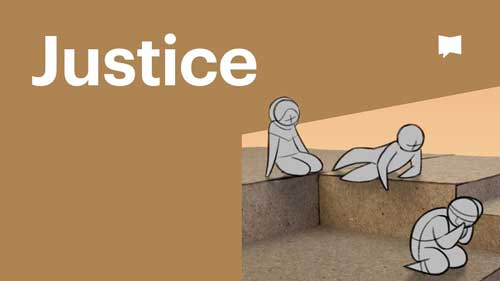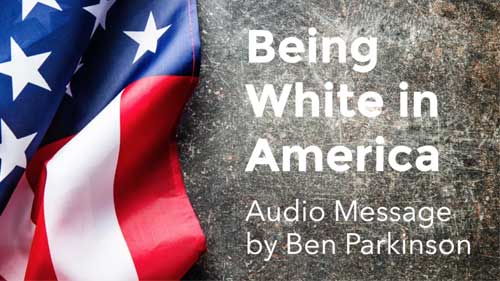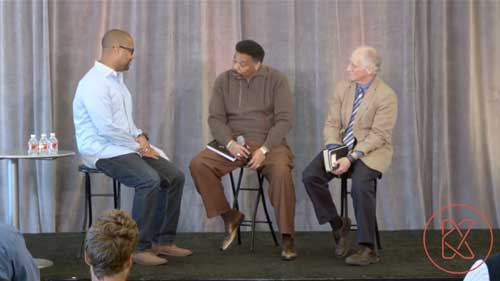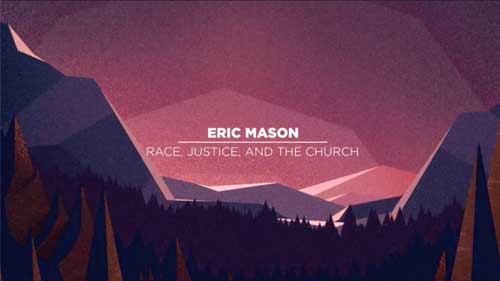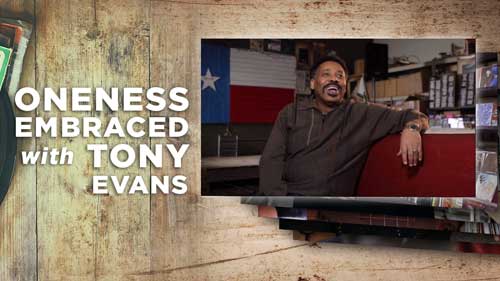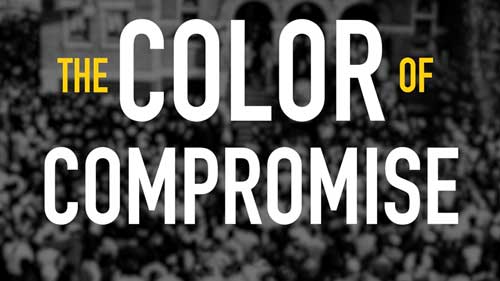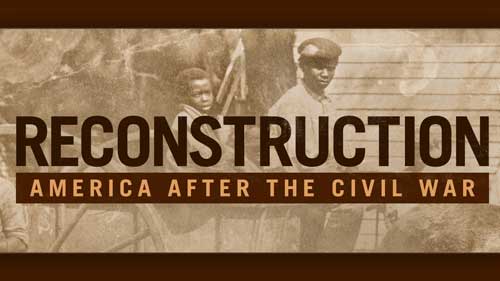Race & Justice
Navigating issues of race and justice.
A collection of educational resources to aid in the ongoing discussion of racial reconciliation in the United States and how the church can help.
When my family was living in Memphis there were two frightening events that took place. First, a young man was randomly beaten by a group of young men in a parking lot my office window happened to overlook. He was hospitalized in critical condition. It was senseless and brutal. A matter of days later an elderly man was forcibly removed from his car, beaten severely, and left lifeless on the side of the road as the perpetrators sped off in his car. Memphis is a big city, lots of people coming and going, but I remember feeling vulnerable, even scared, as I confronted the question: Could that have happened to me, my wife, my children? With a million+ people coming and going was a similar possibility likely? Not really. But that didn’t change the fact that it made me feel afraid, and rationalization didn’t make me feel any better. I was afraid for some time.
Every one of us has experiences that shape our perspective. Maybe a difficult childhood experience influences how you see people or situations. Maybe the pain of grief or loss shapes how you interact in relationships. Maybe the way you were raised and the atmosphere of your home left a deep impression on you that you carry to this day. Right, wrong, or otherwise, those things exist, and they have a great bearing on how you perceive the world around you. But what happens when your perspective, based on your experience collide with the perspective and experience of another? Are you right? Are they right? I’m not talking about paint colors or food preferences; I’m talking about politics, religion, and social issues.
Let’s get a little uncomfortable. As we look at what’s going on in the world, all of us can be guilty of reducing most everything we see as simply right vs. wrong. But things are often much more complex and underserved by a simple ‘good vs bad’ way of interpreting things. For example, all of us are aware of the conversation about policing in our country. This is a loaded conversation, I understand. Please give me grace as I share several things that can be simultaneously true:
It is true that the majority of our police or good servants to our communities.
It is true that there are many police officers who are unfit to serve our communities.
It is true that many of us have had positive experiences with police.
It is true that many of us have not had positive experiences with police.
It is true that many experience and believe we are all completely safe with police.
It is true that many experience and believe that we may not be safe with the police.
Here’s where things have really gone awry. Does your positive experience with police negate the negative experiences of others? Does the negative experience of others make your positive experience untrue? It’s easy to simply reduce the debate to right vs. wrong. It may even feel more comfortable for us, but there aren’t always easy answers in the questions raised. This is where I’d suggest we must take a different path, and I would suggest compassion, context, and conversation are the way forward.
Compassion. If our first response is to be ‘right’ and not to be moved to compassion, understanding, and empathy, we’re on the wrong path. I’ll explain. We all have a story—all of us carry experiences, pain, joy, grief, hope, and we all experience what it’s like to be afraid. As humans we all bear God’s image, are deeply loved, and are equally broken. While our experiences and perspectives are vastly different, we are all, if we are willing to see past our own brokenness, human. We are designed with great meaning and purpose, while being shaped by things that often happened outside of our control. If being right matters more than seeing someone’s else’s pain, regardless of how ugly or ‘unjustified’ it might look to us, we’re in trouble. In the Gospel of Matthew, chapter 23, Jesus was broken-hearted as he lamented over the city of Jerusalem…the very place he’d face a sham of a trial and be executed by the very people he came to save. What’s crazy, Jesus walked straight into that city and gave his life. We must see the world with compassion, and if we’ve reduced each other to an ‘issue’ there’s little hope of anything moving forward.
Context. If we’ve surrounded ourselves with people who see the world exactly as we do, we run the high risk of living in an echo chamber if we aren’t already. We all feel most comfortable with people who think like us, look like us, and see things as we do—that’s natural. However, if that’s the case, it’s likely a good idea to stretch yourself by experiencing other people and perspectives that come from very different places than yours. That takes humility, intentionality, and bravery. Back to Memphis, I’ll never forget an incidental moment that had such an impact on my perspective. I hopped in my friend Russell’s car on our way to lunch. As natural as it was for Russell to buckle his seatbelt, he dropped his license and registration in the cup holder between the seats. He made nothing of it…he just did it. That act stood out to me, and I asked Russell why that was part of his routine. His response was gentle and simple, “If necessary, I’d rather not reach over into my glove compartment, or reach back for my wallet.” We drove off to lunch like nothing happened as my mind raced. Russell didn’t make it a big deal, he didn’t leverage it to make me feel white guilt, he didn’t complain…he just dropped his registration and license just like he had done every time before. Never once have I thought of doing that when I get into my own car. That really sat with me. Does that mean Russell’s life was in imminent danger? Not likely. Did what Russell witnessed in the world around him make him feel like that would be a good thing to do? Yes. Truth be told, I’d do the same thing if I were in Russell’s shoes. Does this mean all police are out to get him? No. Even still, that didn’t change the fact that, from Russell’s point of view, that was a reasonable thing to do. That brief experience left a powerful impression on me. In the Gospel of Mark, chapter 2, Jesus was in Levi’s house eating with tax collectors and sinners. The Pharisees standing on the outside couldn’t stop shaking their heads as they watched the careless and reckless behavior of Jesus, this so-called teacher. Had they been on the inside, they would have seen that salvation and repentance was taking place. Context matters, and compassion gives permission to meaningful context.
Conversation. Here’s something we all know but too often forget. Any media source (television, print, social media, etc) profits by selling advertising. The more people look, the more money can be collected. Sadly, conflict is very profitable. Often the mirror that is held up to us is driven by profits more than being an accurate reflection of us and our society. This has only driven a wedge between people, and we all lose as a result. We absolutely face difficult things in our history and in our present. With that being true, the vast majority of people hunger for healing while carrying fears, experiences, history, insecurities, and discomfort with conflict. We are human. We had a saying at the church I served in Memphis: if your table doesn’t change, nothing changes. If we are brave and begin to humbly enter into conversations around our kitchen table it is more than possible our heart can and will change. If we judge each other by the images we are fed, it’s over before it can begin. But one conversation at a time, we will see that we do better together than apart. We experience the richness of life that comes from places we’ve never experienced and perspectives we never considered. We begin to actually see each other, not merely the issues we face (and must face). In the end, it’s possible we may find we didn’t see things properly at the start…we can change. We can humbly struggle and still love and serve one another. The picture is complex and beautiful in person, and TV and social media will never paint it accurately. It must be done in proximity…relationally.
I would challenge you to give yourself permission to seek first compassion, consider a much broader context, and enter into meaningful conversations. As I look into the mirror as a 50+ white male, do I worry that assumptions are being made about me based on my age, gender, and ethnicity? Absolutely. But compassion, context, and conversation have all taught me that I have brothers and sisters of all colors who are fearful of the very same thing. Through this, we hope to faithfully live out Micah 6:8: “He has shown you, O people, what is good. And what does the Lord require of you? To act justly and to love mercy and to walk humbly with your God.”
Mike | Westwood Pastor
This wonderful animated video is perfect for families to begin the discussion about how the Bible helps us to understand true justice.
Pastor Ben Parkinson teaches on a white, majority culture perspective on race, and how we might take the important steps of facing our past to imagine a hopeful future.

Be the Bridge
An organization that seeks to empower people and culture toward racial healing, equity and reconciliation. Like them on Facebook and visit their website for more information.
Tony Evans seeks to promote a biblical understanding of the kingdom foundation of oneness in Christ. To set-up a FREE RightNow Media account, email info@westwoodstcloud.org.
Jemar Tisby walks us through a racially divided American church and suggests ways to foster a more equitable and inclusive environment among God’s people. To set-up a FREE RightNow Media account, email info@westwoodstcloud.org.
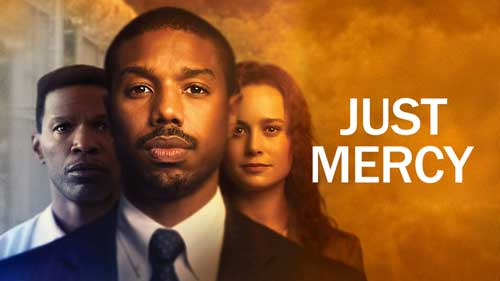
The Help, Hidden Figures, Selma, and Just Mercy
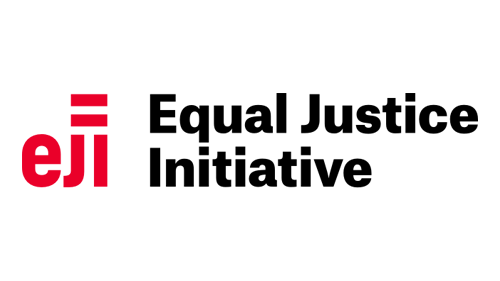
Equal Justice Initiative
Equal Justice Initiative works to end mass incarceration, excessive punishment, and racial inequality. Like them on Facebook and visit their website for more information.
